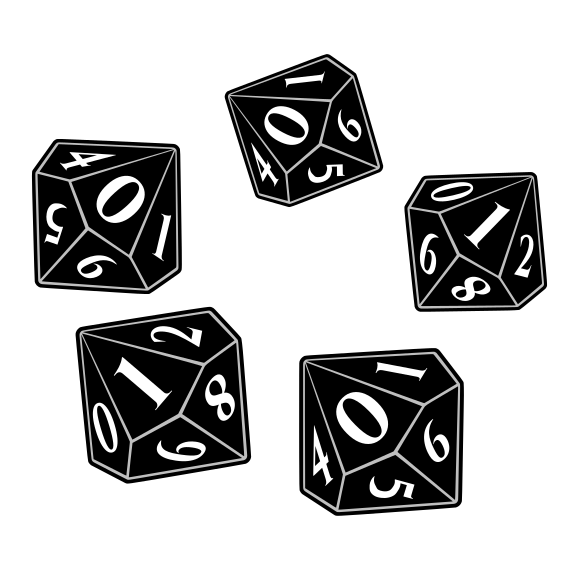The week in review at Accretion Flow

This week, there’s been a lot of focus on the different types of characters that make up the world. As mentioned last week, the game has been re-imagined several times over the past few years. It has existed in several prototype formats over the last couple of decades. So, the focus has been on codifying those ideas, descriptions, and mechanics into a singular, focused system.
It’s definitely a work in progress, but we’re well underway.
We’ve also done a lot of work on the website and are preparing a streaming outline and schedule. You’ll all be welcome to come hang out and discuss the game live as we work on the rules and world-building. We’ll also be posting a podcast of short fiction lore on YouTube.
So pop over, follow on Twitch, and subscribe on YouTube to stay current!
In the mean time…
Core Systems: Core Attributes

Core Attributes
With tabletop games, attributes generally vary as wildly as the games themselves. Some, like the older edition of Big Eyes Small Mouth (BESM) 2nd edition, have a tri-stat: Body, Mind, and Soul. Hasbro’s Dungeons & Dragons have the classic six (6): Strength, Dexterity, Constitution, Intelligence, Wisdom, and Charisma.
There’s only a right or wrong answer if they fail to have a purpose or there’s missing granularity for individual games. This is the primary reason we’re ditching the traditional 6 and opting for 9. There are certain aspects of the game that benefit from the added granularity. Precisely player diversity and agency. We’re a classless system, which is, by and large, the majority of systems, so it likely comes as no shock to you, dear reader, but on the chance you’re fresh off the D & D train, buckle up, buttercup!
We have three (3) categories: Body, Mind, and Persona. These each contain 3 attributes. We’ve broken them down this way for character creation and the mechanisms by which Game Masters and Players operate mechanically. Generally, GMs only need to use Body, Mind, and Persona to operate NPCs. This lessens the mental load on a GM when trying to manage large casts. Still, when there’s a special someone, like a rival, a BBEG (big bad evil guy), or re-occurring NPC, it’s encouraged to give them the whole 9. But that’s for another post.
Body as a category contains attributes that represent a character’s physical strength, agility, reflexes, endurance, toughness, and conditioning. Power covers strength and the ability to apply their physical Prowess to their environment; Finesse is a character’s ability to physically manipulate themselves and objects in their environment, and Constitution bolsters their endurance, Vitality, and ability to absorb damage.
Mind represents a character’s cognitive power through Prowess, the sharpness of their mental reaction via Acuity, and their mental fortitude and capacity through Resilience.
Persona measures a character’s social instincts, coercive power, and stoicism. Cunning covers a character’s ability to respond to and manipulate social environments. Charisma is a character’s power to charm, express passion, and inspire devotion. Finally, Composure is one’s ability to maintain one’s presence in the face of adversity, shield oneself, and process psychological traumas.
When creating characters, players will be given set blocks of points to spend however they choose within the categories. This will allow for deterministic results and keep everyone on an even starting field, but that’s a bit more than is really meant to be covered here, and the numbers are sure to change more as we get playtest data in.
Beyond Core
Some metaphysical and other derived attributes are determined through means other than direct player point assignment, like root/core attributes: Fate and Æther. We won’t go into too much detail here, as these are still in development. However, the gist for each is as follows:
Fate is the supernatural grace that player characters are constantly influenced by, sometimes beneficially and others…not so much.
Æther is a measure of one’s essence reserves, their magical oomph as it were, with Vitality representing their health.
Vitality measures one’s health. There’s more granularity here, but at a baseline, it’s an abstraction of Hit Points that considers different types of damage a character may face.
It’s late, and that wraps up the mechanics for today. For more details, swing by Twitch sometime when we’re live and come hang out!
See you on the horizon…